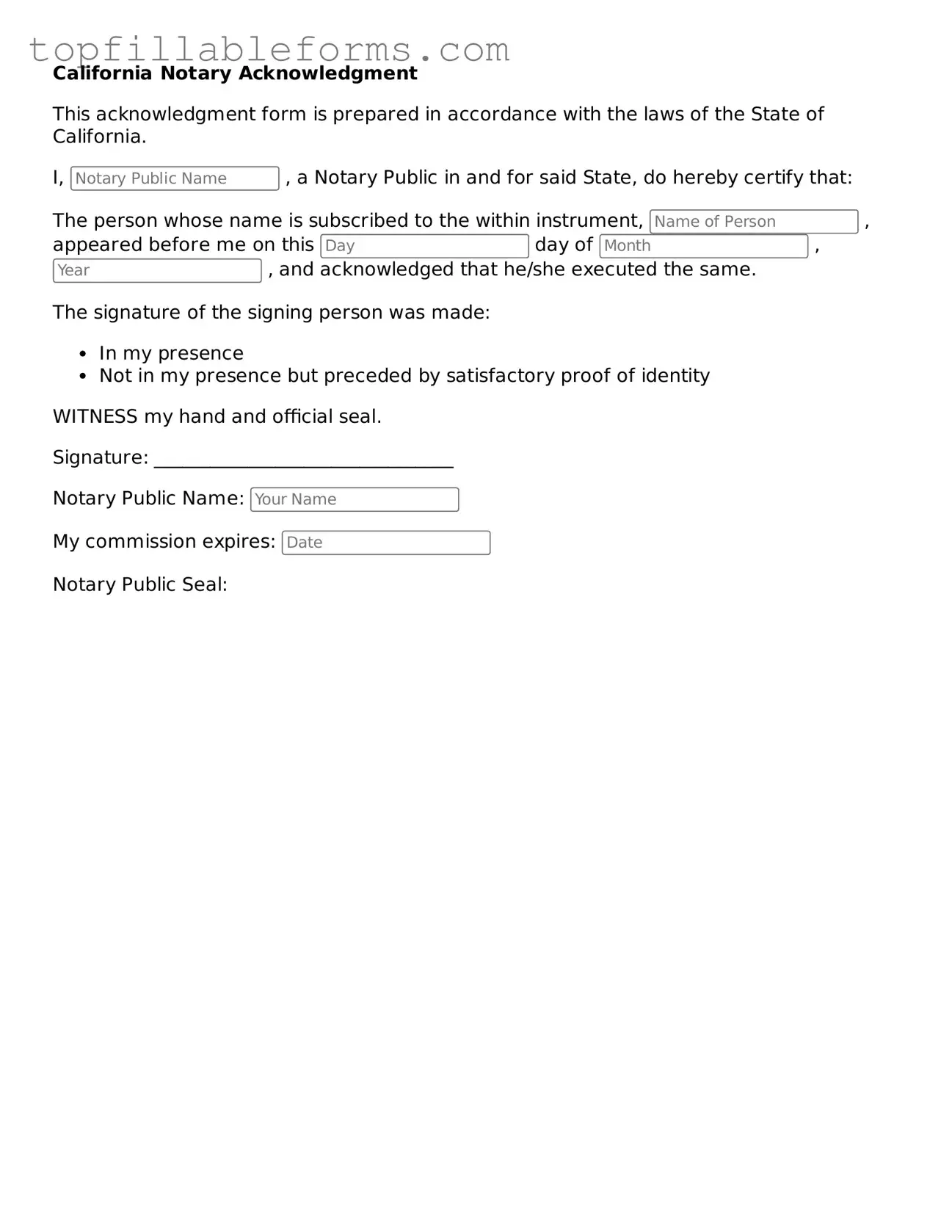Attorney-Verified Notary Acknowledgement Template for California
The California Notary Acknowledgement form is a legal document that verifies the identity of a signer and confirms that they willingly signed a document. This form is essential for ensuring the authenticity of signatures on various legal papers. Understanding its purpose and requirements can help streamline your notarization process.
Open Notary Acknowledgement Editor Here

Attorney-Verified Notary Acknowledgement Template for California
Open Notary Acknowledgement Editor Here
Finish the form now and be done
Finish your Notary Acknowledgement online by editing, saving, and downloading fast.
Open Notary Acknowledgement Editor Here
or
▼ PDF File
